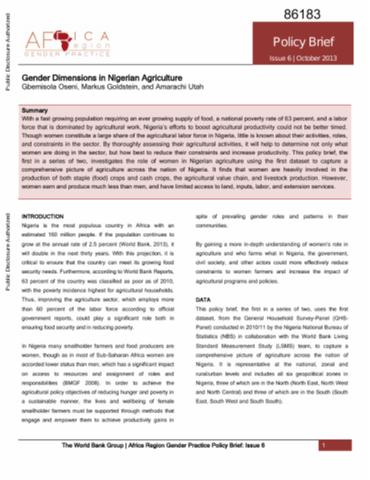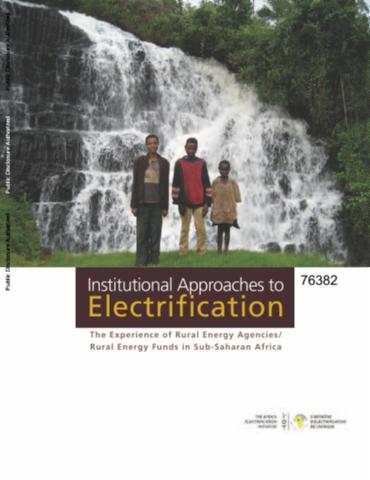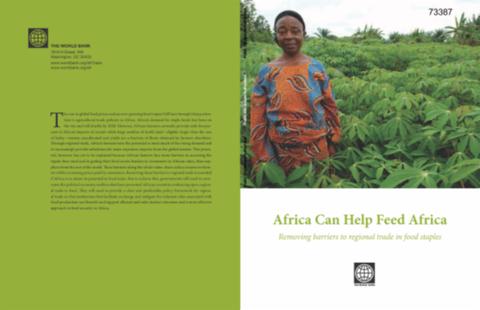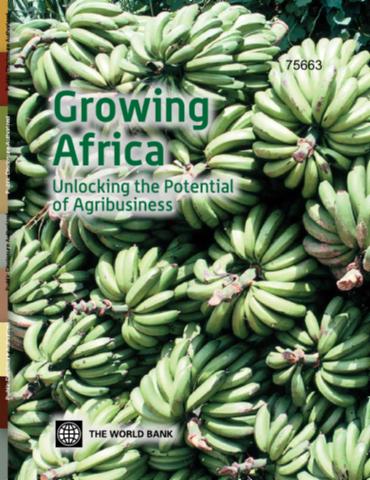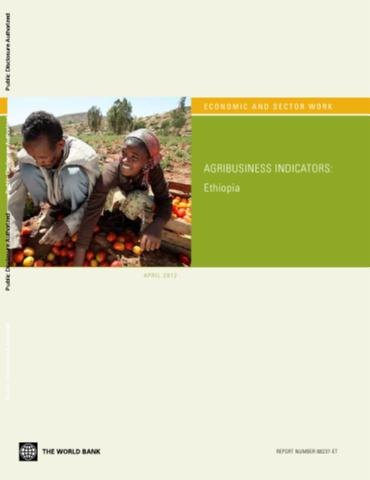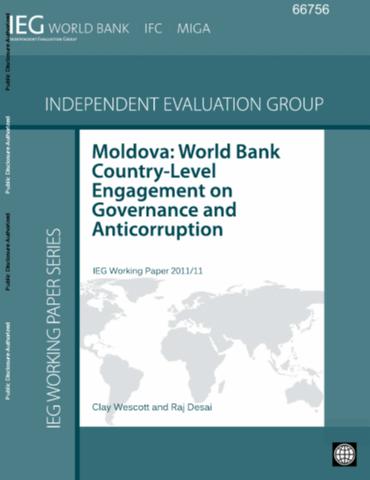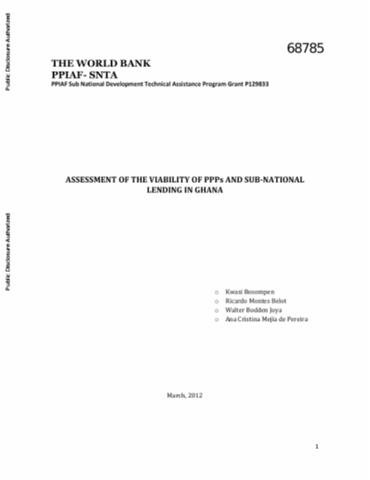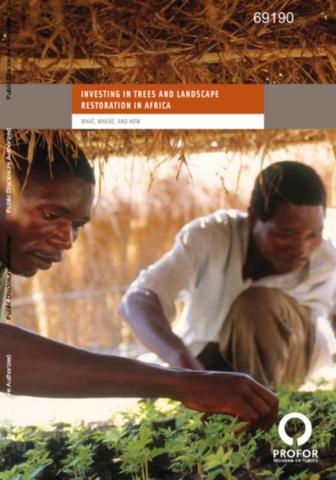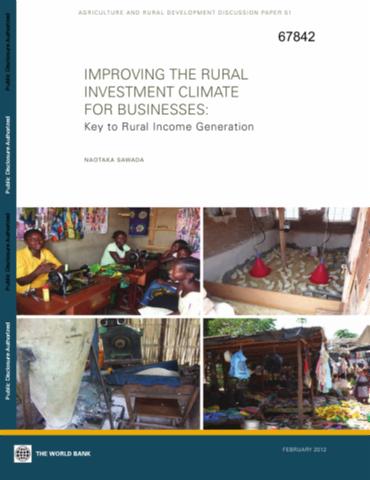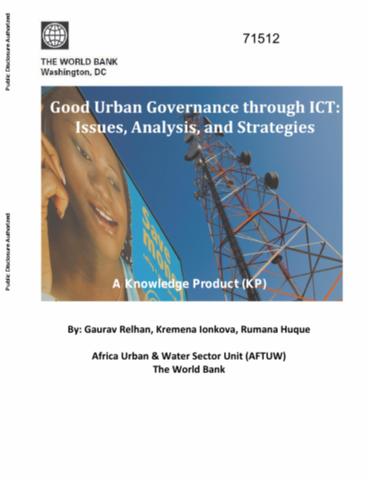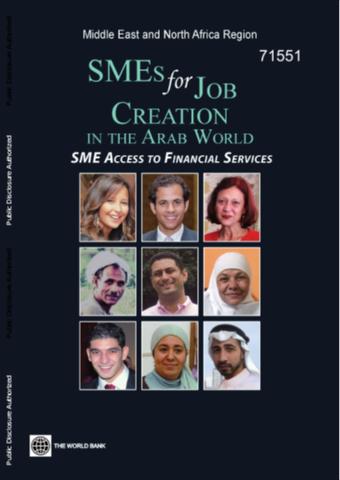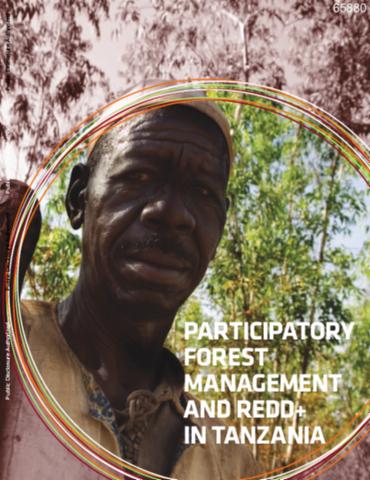Gender Dimensions in Nigerian Agriculture
With a fast growing population requiring an ever growing supply of food, a national poverty rate of 63 percent, and a labor force that is dominated by agricultural work, Nigeria's efforts to boost agricultural productivity could not be better timed. Though women constitute a large share of the agricultural labor force in Nigeria, little is known about their activities, roles, and constraints in the sector.

